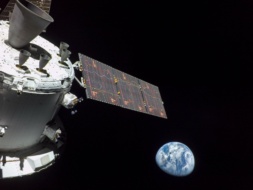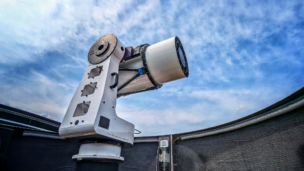Earlier this month, the US Air Force Research Lab (AFRL) awarded SpaceX a $102M, five-year contract for its rocket cargo transportation program. The contract, first reported by Aviation Week, is a part of AFRL’s rocket cargo project, which seeks to tap into advertised commercial launch capabilities as a leased service.
No Rocket Cargo funding is going toward the development of new vehicles. The eventual goal is to find rockets that can deliver up to 100 tons “anywhere on the planet within tactical timelines” for airlift, resupply, disaster aid, and logistics.
- As a part of the Jan. contract, AFRL will study SpaceX launches and booster recoveries to assess the feasibility of the rockets for rapid Earth-to-Earth cargo transportation, SpaceNews reports.
- While the contract isn’t created with any specific rockets in mind, the Falcon family isn’t really relevant here. Starship is the only vehicle being developed by SpaceX with both orbital trips and point-to-point travel in mind.
AFRL envisions awarding several contracts to flesh out its point-to-point transport capabilities. Recently, US Transportation Command and Blue Origin signed a cooperative R&D agreement (CRADA) to study the feasibility of rocket cargo transportation.
The US military is also working on a standardized shipping container design, for a cargo module that could work across point-to-point launchers. Of course, there are plenty of other complexities to work out in the coming years. One that comes to mind: How does one land a rocket in a disaster-stricken place without power, let alone a spaceport?
Why do this in the first place? “Logistics speed is at the heart of military supremacy. If a commercial company is in advanced development for a new capability to move [cargo] faster, then DOD needs to promptly engage and seek to be early adopters,” per AFRL. The Pentagon can already go anywhere on Earth quickly—with missiles. And a new class of hypersonic vehicles promise to leverage space in novel, unpredictable, and dangerous ways.
But tapping space to transport cargo (and payloads that don’t detonate on arrival) would mark a paradigm shift for the Pentagon. And US industry, for that matter, showing a sustained decline in launch costs.




